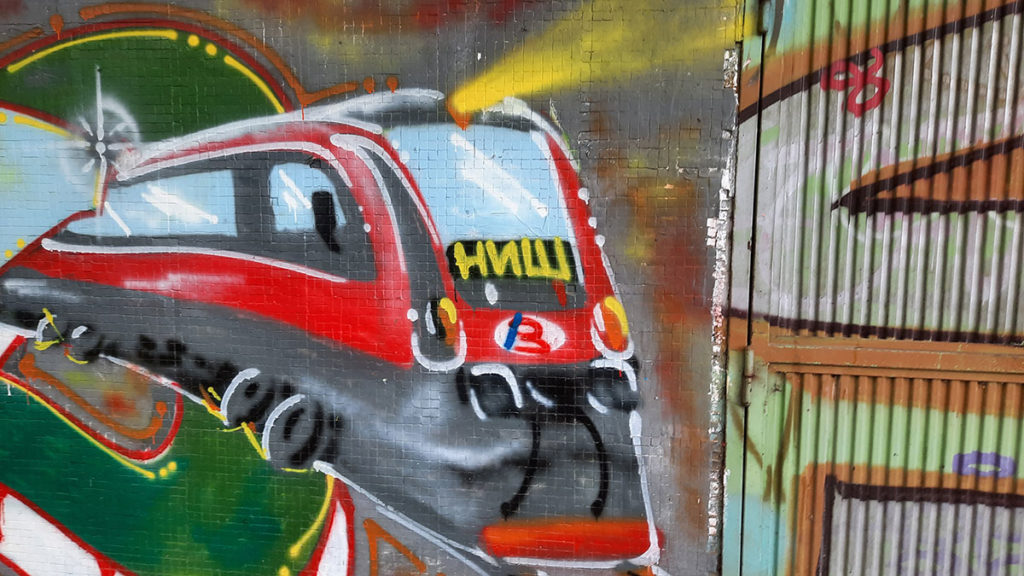
The photo of a girl holding an oversized book, with the question “Do you have trouble with grammatical cases like people from the south of Serbia?” is a reminder that there is still life in a morally infected environment: new generations yet to be taught the structured arrogance of privilege which sees any difference as a mistake which must be corrected, by force if necessary.
The advertising message is branded with the logo of the Philological High School of Belgrade, and hard-working social media sleuths soon discovered why. Pupils of this school are the bearers of the “Digital Primer” project, aiming to contribute to “increasing the level of digital literacy in the Republic of Serbia”, which is supported by various institutions and government organizations (Institute for Improving Education, Institute for Evaluating the Quality of Education, Digital Serbia Initiative), one marketing agency and the US International Development Fund.
The project description indirectly explains the connection between this large book – a dictionary of foreign words and expressions – with grammatical cases in the southern dialects of Serbia: “Digital Primer aims to raise the culture of speech in a modern and accessible way, but also to preserve the Cyrillic alphabet as our native script.”
Then there is a “worrying” fact, cited without a source, that as many as 51% of the “Serbian population” is still digitally illiterate, followed by the statement: “With the huge influence of foreign languages, especially through social networks, the line between moderate modernization and complete alienation is becoming ever blurrier. “
After getting called out on social media and seeing the reaction from journalists from the south of Serbia against stigmatization and discrimination of Serbian citizens based on language variance, a non-apology appeared on the school’s Instagram profile – “to everyone who felt discriminated against in any way” – a statement that formally resembles an apology, but does not imply a recognition of responsibility and remorse for the discriminatory act.
This lack of responsibility was evident once again when, as was reported in the media, the principal of the elite high school “denied any responsibility and transferred it to the children” who are, probably, solely in charge of the project and its promotional campaign.
The professors at the elite high school failed to teach their students that digital literacy is not the digitization of primers, that it is not about raising the culture of speech, nor the protection of the Cyrillic alphabet. Maybe because they themselves are digitally illiterate, without being aware of it, because state institutions seem to promote the belief that linguistic and other deviations from the prescribed standard are “uncultured”.
The culture of denunciation and public humiliation of everything that deviates from the standardized rules, from language and alphabet to practically every aspect of life – may already be well advanced, but there is always room for improvement. At least in the digital environment, there are no obstacles to expansionist aspirations and everyone is literate enough to copy-paste standardized messages on Facebook.
Translated by Marijana Simic
Peščanik.net, 08.11.2021.


